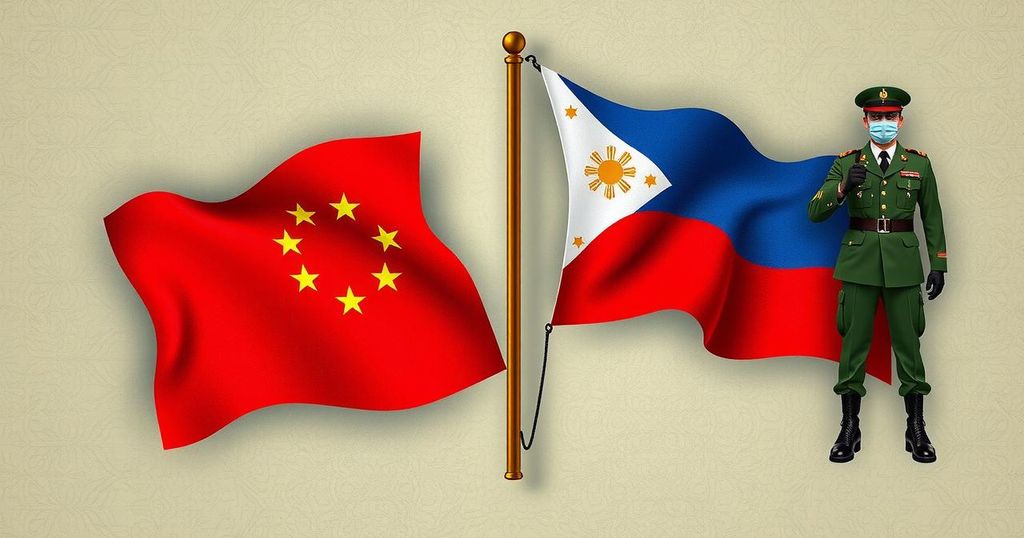China Calls for Withdrawal of U.S. Typhon Missile System from the Philippines
China has condemned the Philippines for planning to acquire the U.S. Typhon missile system, urging its immediate withdrawal. The Chinese foreign ministry warned that this move escalates regional tensions and could provoke an arms race. They called for the Philippines to reconsider its military actions in favor of regional peace and stability.
On December 23, China’s Ministry of Foreign Affairs, represented by spokesperson Mao Ning, strongly opposed the United States’ deployment of the Typhon missile system in the Philippines. Mao emphasized the necessity for the Philippine government to retract this military system, which was purportedly promised to be withdrawn. The statement follows reports that the Philippine military intends to incorporate this strategic weapon to bolster its maritime defenses.
During a press briefing, Mao expressed concerns regarding the introduction of military hardware by external powers, arguing that it exacerbates regional tensions and contributes to a geopolitical arms race. She articulated that such militarization represents a grave threat not only to the Philippines but to Southeast Asia as a whole, deeming it reckless and provocative.
Mao further highlighted the regional need for peace and stability, urging the Philippines to respond to the calls from neighboring nations and remove the missile system as it committed to doing. She reiterated, “What the region needs is peace and prosperity, not the missile system or confrontation.”
In response to the Philippines’ military aspirations, China maintains that it is imperative for the region to refrain from actions that could ignite conflict and instability. The call for the withdrawal of the Typhon system reflects broader concerns regarding foreign military interventions impacting Southeast Asian security dynamics.
Mao concluded with a reminder of the potential consequences of the Philippines’ decisions regarding the Typhon missile placement, stating that it is critical for the country to consider the implications for both its citizens and the stability of the entire region.
These developments highlight the intricate balance of military alliances and regional security, urging all involved parties to prioritize diplomatic solutions over military escalations.
Recent tensions in Southeast Asia have been exacerbated by the increased military presence of external forces, particularly the United States. The U.S. has been actively engaging with nations in the region, promoting defense alliances amidst rising tensions with China. The situation surrounding the deployment of the Typhon missile system in the Philippines is a pivotal issue, reflecting the shifting dynamics of military power and geopolitical strategy in the region, which has implications for broader Asian security and international relations.
In summary, China’s strong denunciation of the U.S. missile system deployment in the Philippines underscores the fragile state of regional security in Southeast Asia. The Chinese government has called for the Philippines to adhere to its commitments regarding the withdrawal of the Typhon missile system, emphasizing the need for peaceful coexistence and stability over escalation and confrontation. The outcome of this situation could significantly impact the geopolitical landscape of the region.
Original Source: english.news.cn








Post Comment